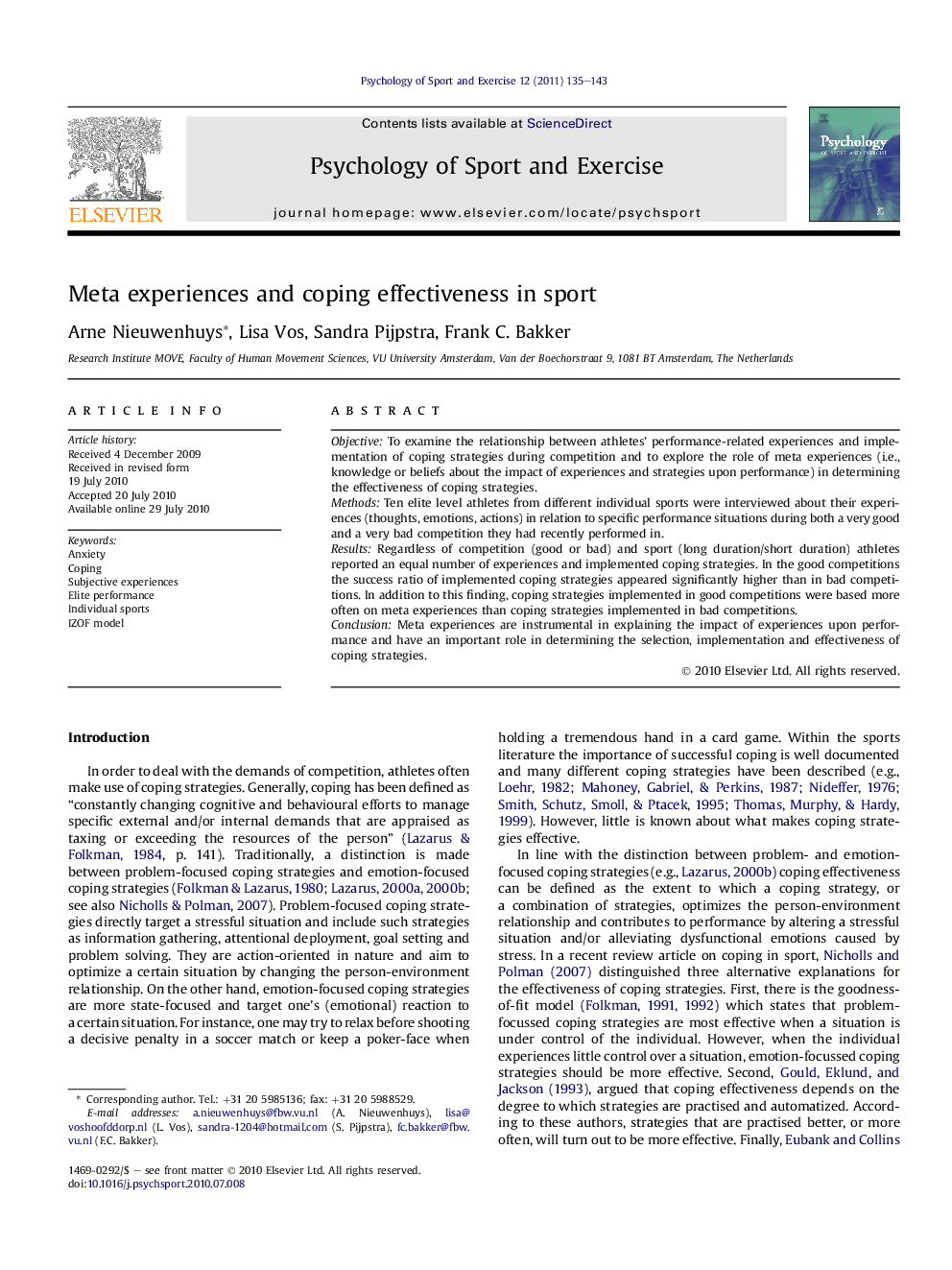| Article ID | Journal | Published Year | Pages | File Type |
|---|---|---|---|---|
| 894525 | Psychology of Sport and Exercise | 2011 | 9 Pages |
ObjectiveTo examine the relationship between athletes’ performance-related experiences and implementation of coping strategies during competition and to explore the role of meta experiences (i.e., knowledge or beliefs about the impact of experiences and strategies upon performance) in determining the effectiveness of coping strategies.MethodsTen elite level athletes from different individual sports were interviewed about their experiences (thoughts, emotions, actions) in relation to specific performance situations during both a very good and a very bad competition they had recently performed in.ResultsRegardless of competition (good or bad) and sport (long duration/short duration) athletes reported an equal number of experiences and implemented coping strategies. In the good competitions the success ratio of implemented coping strategies appeared significantly higher than in bad competitions. In addition to this finding, coping strategies implemented in good competitions were based more often on meta experiences than coping strategies implemented in bad competitions.ConclusionMeta experiences are instrumental in explaining the impact of experiences upon performance and have an important role in determining the selection, implementation and effectiveness of coping strategies.
Research highlights►Athletes use an equal number of coping strategies in good and bad performances. ►In good performances, more coping strategies are successful. ►Coping strategies are more effective when based on meta experiences.
